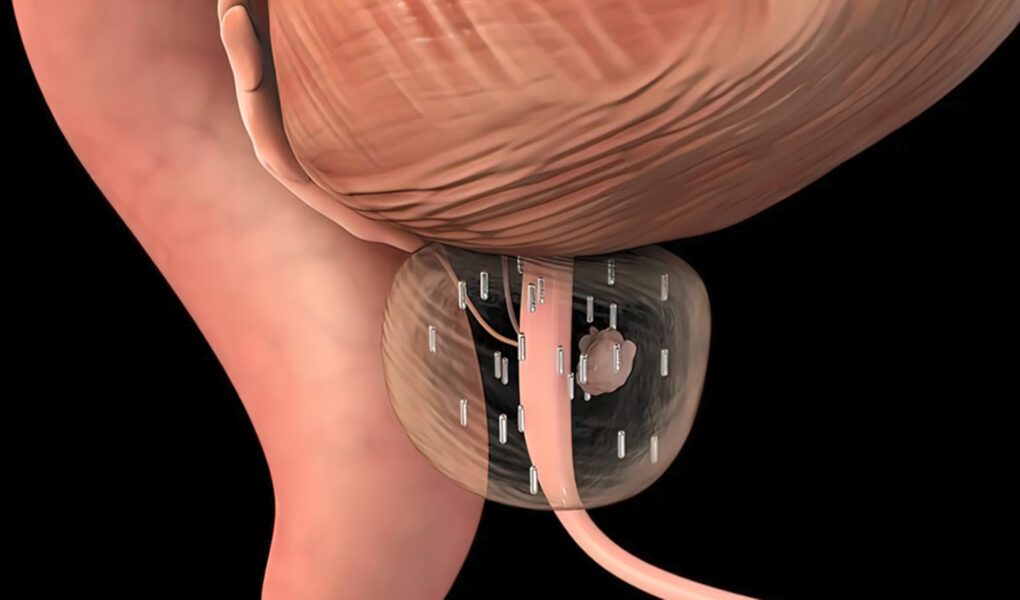Prostate is a small part within the male reproductive system. Beside penis and testicles, the prostate is important for a man. Prostate is small gland with a size of walnut that can be found between the base of the penis and rectum, deep inside the groin and surrounding the urethra (tube connected to the bladder). Prostate supplies seminal fluid mixed with sperm for testes that is important for sperm viability and motility. Prostate cancer is the most common cancer among men with Casodex 50 mg being the common drug used to treat this condition.
Most prostate cancers develop from the gland cell. Prostate cancer is the common cancer in men next to skin and lung cancers. It is estimated that 1 in 8 men will be affected by prostate cancer at some point of their life. It is typically diagnosed in those aged 65 and above. Although only 1 in 40 of men diagnosed with prostate cancer face death, it is still a number that means the most especially when the population of male is slightly lower than females. Thus, by knowing the signs of prostate cancer, a person can definitely get early diagnosis and early treatment that could improve a person’s chances of living both in quality and quantity.
Symptoms of prostate cancer may or may not be experienced by a person. Common symptoms include difficulty passing urine, feeling discomfort when passing urine, presence of blood in urine or semen, increased urination frequency especially at night time, having trouble completely emptying the bladder, unintentional weight loss and pain in bones especially at the back, hips or pelvis (waist) area. Due to the nature of the symptoms that may resemble other medical conditions, it is best for a patient to get checked by a doctor if any of the above symptoms is experienced.
Staging of prostate cancer is based on the size of the cancer and if the cancer has spread or not. Stage 1 means the cancer is in only half of one side of the prostate or less and stage 2 means the cancer is in more than half of one side of the prostate. Both stage 1 and stage 2 are still completely contained within the prostate gland. Stage 3 means the cancer has broken through the covering of the prostate gland and may have spread into tubes that carry semen. Stage 4 can mean the cancer has spread to nearby body organs such as bladder, nearby lymph nodes or other parts of the body outside the pelvis such as lungs or liver. While survival rate for prostate cancer is generally high, those with stage 4 only have around 50% of surviving within 5 years or more after diagnosis.
When a person is confirmed to have prostate cancer, it can be very upsetting for the person and at times it does feel like the end of them. However, prostate cancer is quite different from typical cancer. This is because the survival rate for those with prostate cancer approximately 5 years after being diagnosed with the cancer is 85% and almost 80% of those diagnosed with prostate cancer live for more than 10 years.
Such a survival rate is backed by the nature of the disease itself. Prostate cancer surprisingly is a slow-growing type of cancer which means there is more time and chance for men to get treatment early on. This is why it is important for those with symptoms of prostate cancer to get checked as there is a lot of chance to detect it earlier. Knowing the fact that survival rate is high even after being diagnosed with prostate cancer and the nature of the disease itself, patients should not panic and be overly worried as long as they get treatment and follow doctor’s advice.
Some might wonder if prostate cancer is very curable. Yes, prostate cancer is typically very curable especially when it is detected in an early stage and treated promptly. The slow nature of the cancer does make it easy for prostate cancer to be detected in an early stage. As a matter of fact, 90% of prostate cancers are discovered at an early stage. It is worth noting that prostate cancer might not be curable when it is spread to other parts of the body or also known as metastasis. Since prostate cancer, just as with other cancers, is individualised cases, it is best for patients to have thorough discussion with their doctor as the outcomes often depend on the stage of the cancer when it is diagnosed.
The question now is, is T2 prostate cancer curable? Discovering the cancer at this stage means that it is typically localised to the prostate. Thus, it can be considered as curable. There are a number of treatments available which range from surgery, chemotherapy and radiation. It is common to see treatments in combination. Treatments will always depend on the staging of the prostate cancer and the condition of the patient such as other health problems they might be having.
Buy Keppra 500mg Tablet 10s (strip)




